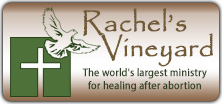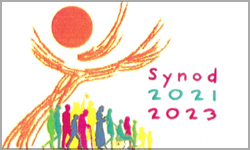February 26, 2023
First Sunday of Lent
Pastoral Letter: “The Eucharist: Yearning for the Lord” Lent 2023
 My dear Brothers and Sisters in Christ,
My dear Brothers and Sisters in Christ,
“For as often as you eat this bread and drink this cup, you proclaim the death of the Lord until he comes.” I Corinthians 11:26
About 35 years ago, when I was a pastor of a parish, the Bishop asked me to welcome as a guest the first Archbishop of the Military Services of the United States, Archbishop Joseph Ryan. He directed all our Catholic military chaplains throughout the world. One evening, he recounted one of his experiences as a young Marine chaplain in the Pacific during the Second World War.
The Marines were storming the beaches of islands in the Pacific held by the Japanese. Their names are legendary: Tarawa, Saipan, Okinawa, Iwo Jima. These were bloody conflicts, and the death toll was considerable. I found it fascinating to hear someone who had been present speak of them.
Father Ryan would celebrate Mass on the beaches and then take the Blessed Sacrament to young Marines, some not much older than 20, manning howitzer installations. One occurrence was burned into his memory.
There were two young soldiers to whom Father Ryan gave Holy Communion in a remote area of the beach. Having completed his task, the priest turned to walk away. Several yards distance, a terrific explosion threw him to the ground. He looked behind, and in the spot where he had stood, an enemy shell had fallen and exploded. He returned to the demolished installation. One Marine was already dead. The other was severely wounded and near death. He took the dying Marine in his arms and heard him ask, “Father, am I going to die?” “Yes, I am afraid so,” Father Ryan gently replied. “And is my Buddy dead?” the Marine asked. Father Ryan answered affirmatively. “Good,” the Marine responded, gasping for breath, “That’s good. We both have Jesus in us.”
Now, I repeat this story for a reason. It is not only deeply touching. But even more, this account of young Marines dying on a beach in the Pacific and what the Eucharist meant to them speak more eloquently than ten thousand theology books.
We know that we live under less threatening circumstances, but sadly many take the Eucharist for granted. Is not Mass attendance down? Do not the surveys show that a large segment of Catholics do not believe what the Church teaches about the Eucharist? How different it was for the two young Marines. They knew exactly what they believed. They knew what the Church taught. They also knew that our Lord had given this gift of Himself so that the Church could share that gift with them.
The Second Vatican Council taught nothing new about the Eucharist but repeated that ancient faith in these words: “At the Last Supper, on the night he was betrayed, our Savior instituted the Eucharistic sacrifice of his Body and Blood. This he did in order to perpetuate the sacrifice of the Cross throughout the ages until he should come again, and so to entrust to his beloved Spouse, the Church, a memorial of his death and resurrection: a sacrament of love, a sign of unity, a bond of charity, a Paschal banquet ‘in which Christ is consumed, the mind is filled with grace, and a pledge of future glory is given to us’” (Sacrosanctum concilium, 47). Whether in the eloquent words of an Ecumenical Council or from the mouth of a dying Marine, the faith is the same.
Jesus Christ gave us the Eucharist “in order to perpetuate the sacrifice of the Cross throughout the ages.” This is the action of Jesus recorded in the Sacred Scriptures. No one “perpetuates” anything because he wants to forget. Our Lord Jesus Christ wanted to be remembered. There is a reason for this. When we eat His Body and drink His Blood, we share in Christ’s death and Resurrection. Whoever eats my flesh and drinks my blood,” Jesus Christ said in the Gospel of St. John, “remains in me and I in him” (John 6:56).
I think of the dying Marines on the beach, or the terminally ill in our hospitals, or the persecuted Christians hiding in a remote location—countless thousands of threatened, suffering, and deprived—they know that the Lord is present to them. This presence, however, is more to them than merely a consoling visit. The Lord comes to abide with them, to offer them a share in His life-giving passion, death, and Resurrection.
What the persecuted, suffering, and dying know, and what we need to realize, is that humans yearn for the Lord. This yearning is not some empty wish with no foundation in fact. This desire was instilled in our hearts at Baptism when God shared with us His life for the first time. He satisfied this thirst and hunger. And He does so through His Son, Jesus Christ, who gives us His own Body and Blood, a flesh that He offered up on the Cross of Calvary.
This mystery is not confined by time. God is not restricted by a clock. Instead, God reaches out to us in the most intimate way possible, through a food that nourishes us for eternal life. Through the Eucharist God answers our most basic need, to experience Him in the here and now, as He is in eternity. In words attributed to St. Augustine, “Eternity is the now that does not pass away” (cf. The Confessions, Book 11).
We yearn for this eternal now, in which God is present. I think this is what the young Marine expressed as he lay dying on a Pacific beach. I know that is what innocent second graders desire when I ask them what sacrament they are to receive this year and they shout enthusiastically, “Holy Communion.” What the cynical, callous, and corrupt of this world cannot ever admit is the innocence of children! Unfortunately, these men and women of the world yearn for nothing, except their own gratification and satisfaction. But the innocent, the little children, the dying, and the poor, left empty by this world—they know their yearning and that only God can satisfy their desire.
Catholics are a sacramental people. The Sacrament is not found in a synod, or programs, or re-structuring, or anything else devised by humans. The Eucharist is the Sacrament par excellence which nourishes the Body of Believers. Just as we cannot live bodily without food, neither can we live spiritually without the Eucharist. For the Catholic, the Eucharist is a powerful teacher and sign of contradiction to the empty promises and worthless values of the world. This truth the young dying Marine knows, as well as a child of 7 preparing for Holy Communion. They both yearn for the Bread of Heaven, Christ the Lord.
The three-year Eucharistic Revival in which Catholics of the nation are involved is a moment to rediscover our yearning. Through this moment with our Lord in His Eucharistic Presence, it is my prayer that we will rediscover our innermost hunger and thirst for Him. May the Eucharist continue to satisfy our deepest desire for God. May we yearn for Him and the “banquet in which Christ is consumed, the mind is filled with grace, and a pledge of future glory is given to us.”
Extending to you and your families my blessings, I remain joyfully your bishop and
Devotedly yours in our Lord,

















